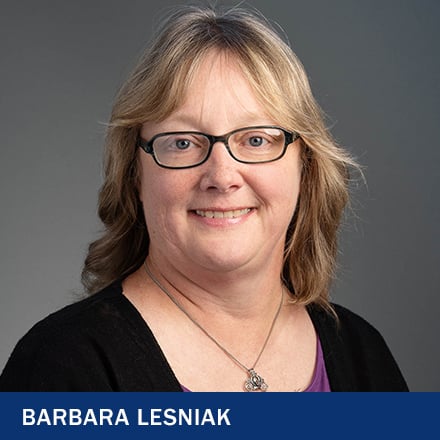
Earn Your Master's in I-O Psychology
- $637/credit (36 credits total)
- Transfer up to 12 graduate credits
- Learn from faculty with industry experience
- Gain workplace-ready research/data skills
- $139,280 median annual salary1
- 6% job growth projected through 20321
Master's in Organizational Psychology Online Program Overview
The business landscape changes rapidly, and you’ll be well-prepared to work within this dynamic area with a Master of Science (MS) in Psychology with a concentration in Industrial & Organizational Psychology from Southern New Hampshire University.
This master’s-level degree readies you to assist organizations as they seek to hire, retain and develop the best employees.
Day in and day out, industrial-organizational psychologists make valuable contributions to the business world – and one of the most important subfields of psychology. They can impact every part of an organization, from back-office administration to the factory floor and all the way up to the C-suite.
With a master’s in I-O psychology, you’ll get to tackle a wide range of workplace challenges and enhance overall quality of life by:
- Identifying and fulfilling training and development needs
- Recognizing and addressing an organization’s internal issues
- Enhancing productivity by improving employee satisfaction
- Conducting market research and assessing the results
While the organizational psychology degree does not lead to licensure or certification, it aligns with Society for Industrial and Organizational Psychology standards to provide skills that apply to a variety of positions. It also expands your employment options to fields like market research and advertising, where industrial-organizational psychologists (IOPs) help fulfill client needs.
What You'll Learn
- Psychological practices to evaluate and improve organizational leadership
- How to set the tone for a healthy work environment
- Conflict resolution using strategic HR management
- Methods to promote and nurture growth in others to achieve common goals
- Strategies and techniques to drive organizational change
- How to apply research findings to enhance organizational performance
How You'll Learn
At SNHU, you'll get support from day 1 to graduation and beyond. And with no set class times, 24/7 access to the online classroom and helpful learning resources along the way, you'll have everything you need to reach your goals.
8 Types of Psychology with Real-World Perspective
The study of psychology can be personally and professionally rewarding. Among the many concentrations in the field you can find diverse opportunities to learn about how people interact with one another in relationships, in the workplace and more.
Career Outlook
Your master’s in organizational psychology can prepare you to serve as a change agent in businesses across every industry, from criminal justice to education, healthcare to IT, manufacturing to transportation. Like many IOPs, you might work in an organization’s HR department or as an independent consultant hired to solve a problem.
Shaunta Irvin Roberson '21G immediately recognized how applicable the degree could be in her life.
"With a degree in industrial-organizational psychology, I am able use the principles of ethics, leadership and consulting to find the most effective approach to change within our organization," she said. "This can be used in my current profession and in my future career paths."
The industrial-organizational psychology program is designed to help you build skills and knowledge you can apply immediately in many types of work settings. While job functions can vary widely, the U.S. Bureau of Labor Statistics groups IOPs into these occupational categories:
Industrial-organizational psychologists
IOPs apply psychology to the workplace by using psychological principles and research methods to solve problems and improve the quality of worklife.
Management analysts
Otherwise known as management consultants, IOPs in this role recommend ways to improve an organization’s efficiency and profit margins.
Market research analysts
Working in a market research capacity, IOPs study market conditions to predict sales of a product or service. They might advise a company on marketing strategy.
Human resource manager
OPs in this role can oversee the recruiting and hiring of new staff, consult with executives on strategic planning and serve as a link between management and employees.
Training and development managers
This specialized aspect of the IOP profession focuses on planning, coordinating and directing workforce development programs.
This online master's in industrial-organizational psychology degree does not lead to licensure or certification. But unlike many other fields of psychology, earning your master's degree qualifies you for work as an I-O psychologist in many workplaces – though having a doctorate may earn you a higher pay grade.

Schiffer points out that master’s in IO psychology students use these skills throughout the program so they’re ready to apply them after graduation.
“Our courses help them reflect on their experiences in new ways and offer them knowledge and skills that enable them to be more successful in their careers – not only after they graduate, but during each term on their paths to their degrees," she said.
It's what worked for Roberson.
"My current role is as a lead content training manager, which requires me to consult with leadership and stakeholders for the organization," Roberson said.
Job Growth
According to the BLS1, the following job growth is projected through 2032:
- Industrial-organizational psychologists: 6%
- Management analysts: 10%
- Market research analyst: 13%
- Human resource managers: 5%
- Training and development managers: 6%
Salary
In 2022 the BLS1 reported the following median annual wages:
- Industrial-organizational psychologists: $139,280
- Management analysts: $95,290
- Market research analyst: $68,230
- Human resource managers: $130,000
- Training and development managers: $120,000
Understanding the Numbers
When reviewing job growth and salary information, it’s important to remember that actual numbers can vary due to many different factors — like years of experience in the role, industry of employment, geographic location, worker skill and economic conditions. Cited projections do not guarantee actual salary or job growth.
Start Your Journey Towards an Online Industrial Organizational Psychology Degree Concentration
Why SNHU For Your Master’s in I-O Psychology?
Flexible
With no set class meeting times, you can learn on your schedule and access online course materials 24/7.
Affordable
As part of our mission to make higher education more accessible, we’re committed to keeping our tuition rates low. In fact, we offer some of the lowest online tuition rates in the nation.
Prior coursework and work experience could also help you save time and money. SNHU’s transfer policy allows you to transfer up to 12 credits from your previous institution. You could also earn college credit for previous work experience.
Respected
Founded in 1932, Southern New Hampshire University is a private, nonprofit institution with over 160,000 graduates across the country. SNHU is accredited by the New England Commission of Higher Education (NECHE), a regional accreditor, which advocates for institutional improvement and public assurance of quality.
Recently, SNHU has been nationally recognized for leading the way toward more innovative, affordable and achievable education:
- “Most Innovative” regional university honors from U.S. News & World Report each year since 2015
- A $1 million grant from Google.org to explore soft skills assessments for high-need youth
- Recognition as a 2017 Digital Learning Innovator by the Online Learning Consortium
Network
At Southern New Hampshire University, you'll have access to a powerful network of more than 300,000 students, alumni and staff that can help support you long after graduation. Our instructors offer relevant, real-world expertise to help you understand and navigate the field. Plus, with our growing, nationwide alumni network, you'll have the potential to tap into a number of internship and career opportunities.
93.6% of online students would recommend SNHU (according to a 2022 survey with 17,000+ respondents). Discover why SNHU may be right for you.
Admission Requirements
Expanding access to quality higher education means removing the barriers that may stand between you and your degree. That’s why you can apply at any time and get a decision within days of submitting all required materials:
- Completed free application
- Undergraduate transcripts, which we can retrieve for you by submitting a transcript request form
Acceptance decisions are made on a rolling basis throughout the year for our 5 graduate terms.
If you don't have a background in psychology or a related field, you may need to take up to 3 foundation courses. For those who do not meet the minimum requirements, the following courses may be required:
- Foundations of Psychology
- Foundations in Statistics
- Foundations in Research Methods
Note: This program does not prepare you for state licensure.
How to Apply
If you’re ready to apply, follow these simple steps to get the process going:
- Complete free graduate application
- Submit undergraduate transcripts
- Work with an admission counselor to explore financial options and walk through application process

Advance Your Career With Your Degree
Shaunta Irvin Roberson '21G
"I have always had a passion to help others, and the psychology program allowed me to gain knowledge in the approaches, methods and theories that can be used when working with people who could display multiple behaviors."
Courses & Curriculum
Starting with a foundation in psychology, you'll learn to apply psychological research to real-world organizational contexts. As you complete the industrial-organizational psychology graduate program’s core coursework, you’ll:
- Dive deep into methods of gathering and analyzing data
- Explore cognitive psychology, including the nuances of decision-making
- Learn how to apply psychometric techniques to measure research findings
- Study how theories of personality apply to culturally diverse populations
- Learn the principles of ethical practice within the field of psychology
Concentration Courses
When you choose to pursue the concentration in industrial-organizational psychology, you'll use your 12 major elective credits to learn hyper-specific I-O psychology information and skills.
Our master’s in industrial-organizational psychology concentration is made up of these 4 courses:
- Motivation in the Workplace: Examine the psychological theories of motivation and their relevance to the workplace, as well as the wider field of industrial-organizational psychology. Explore motivating factors and strategies to identify motivation problems and psychological techniques to address them. Learn how to apply motivational theories to affect change for diverse populations.
- Psychology of Leadership: Combine theory and practice to address contemporary issues in the field of organizational leadership. Review research, case studies and real-world situations to learn how psychological practices can be used to assess and improve leadership. Lay a foundation for your own personal leadership style.
- Organizational Consulting: Explore the relevant skills needed for a successful organizational consultation by an I-O psychologist. Examine the process for diagnosing an organization using psychological methods (measurement), developing a strategy to address issues (assessment) and carrying out a plan (application). Learn the need for ethical standards and the importance of professional responsibility in consulting.
- Seminar in Industrial & Organizational Psychology: A culmination of your work in industrial-organizational psychology, this course brings together all the skills learned in previous courses. You’ll need to demonstrate proficiency in the areas of motivation, organizational leadership and consulting. In doing so, you’ll develop a more sophisticated and integrated approach to industrial-organizational issues and problems.
Expert Instructors
Your online master’s in I-O psychology classes are taught by highly regarded, accomplished faculty with years of real-world, hands-on experience. Our online faculty reflect the advanced academic qualifications and practical experience of a top-ranked, accredited university.

"Every instructor I had was completely invested in their course," said Jackie Lancaster '21G. "They worked in their respective field and shared a wealth of knowledge and experience. Each student was welcome and encouraged to share in class. Instructors responded with positivity and thoughtful conversation to help support students and solidify the curriculum."
And the experience those instructors bring to their courses is what's needed in the workforce now.

“Employers today are faced with many unique challenges,” said Dr. Cindy Alexander, an industrial-organizational psychology instructor at SNHU. “Our master’s in industrial-organizational psychology prepares students to help employers navigate those challenges and find solutions to maximize performance.”
Dr. Thomas MacCarty, associate dean of psychology at SNHU, credits the program’s broad curriculum with the versatility graduates bring to the discipline of I-O psychology.
“The successful graduate student has shown they have insight and knowledge in a wide variety of topics,” said MacCarty. He points to developmental psychology, sociology, behavioral research, ethics and legal issues, and human behavior as just a few examples.
And that's great for working students.
"The psychology programs at SNHU have met all my expectations," said Shaunta Irvin Roberson '18 '21G. "The courses in my graduate studies have given more clarity or correct processes to follow when working with individuals and organizations."
Do you feel drawn to the psychology of the workplace? Do you feel a tug to help build healthier work environments? Move your career and the business world forward with a master’s in organizational psychology.
Add Value Anywhere

“There really is no part of the workplace that is not focused on. If there is any issue that may be hampering an organization from moving forward, an IOP can help alleviate the issue, or at least mitigate it.”
| View Full Curriculum in the Catalog |
|---|
| MS in Psychology - Industrial & Organizational Psychology |
| Courses May Include | ||
|---|---|---|
| MS in Psychology Industrial and Organizational Psychology | ||
| PSY 510 | Research Methods in Psychology I | In this course, students will learn methods commonly used in psychological research. As part of these methods, students learn how to gather and analyze data across a variety of settings. These newly acquired skills and techniques will be reinforced by application to a contemporary issue in psychology. |
| PSY 520 | Research Methods in Psychology II | In this course, students will develop a deeper understanding of the research process and data analysis by applying skills learned in Research Methods in Psychology I and building on them with new skills and techniques including advanced research design and use/interpretation of higher-level statistical tests (ANOVA, regression, etc.). These newly acquired skills and techniques will be reinforced by application to a contemporary issue in psychology. |
| PSY 530 | Social Psychology | The focus of this course is on contemporary social psychology issues and research related to people's interactions with the environment, technology, and society, as well as classic studies and theories in the field-including those related to conformity, obedience, identity, and attitudes that remain relevant. Students will evaluate the perspectives, relevancy, and usefulness of social psychology to real world issues and problems. |
| PSY 540 | Cognitive Processes | Students will investigate topics in cognitive psychology, including memory, language, attention, learning, and decision-making. Students will evaluate the perspectives, relevancy, and usefulness of cognitive psychology to real world issues and problems. |
| PSY 550 | Measurement and Assessment | Learn and apply psychometric techniques commonly used in psychology. Explore measurement techniques and strategies used in the development and administration of psychological tests and assessments. Analyze and assess test and assessment results. Examine the ethical issues related to test and assessment administration and interpretation. |
| PSY 560 | Theories of Personality | This course will emphasize contemporary theories, research, and approaches in personality psychology, connecting these to classic theorists such as Freud as well as other historical traditions and perspectives. The past and present impact of these theories within the ever-changing field of psychology will be explored, as well as the impact they have on culturally diverse clients and special populations. |
| PSY 570 | Ethical Practice in Psychology | This course provides a comprehensive overview of the principles of ethical practice within the field of psychology. Topics include experimentation, confidentiality, respect, resolving ethical dilemmas, professional standards of conduct, and the psychology of ethical behavior. |
| PSY 612 | Motivation in the Workplace | This course will cover the psychological theories of motivation and their relevance to the workplace and wider field of industrial-organizational psychology. Students will explore factors that motivate individuals in organizational settings, strategies to identify motivation problems, and ways to address those issues using psychological techniques. Emphasis will be placed on the practical application of motivational theories to affect change for diverse populations. |
| PSY 614 | Psychology of Leadership | This course combines theory and practice to address contemporary issues and connects them to psychological theories in the field of organizational leadership. It will utilize research, case studies, and real-world situations to illustrate how psychological practices can be used in assessing and improving leadership in organizations. Students will construct a foundation for their personal leadership style with the understanding that it can and should evolve over time. |
| PSY 616 | Organizational Consulting | This course will explore the relevant skills needed for a successful organizational consultation by an industrial organizational psychologist. Students will examine the process for diagnosing an organization using psychological methods (measurement), developing a strategy to address any issues (assessment), and practically carrying out that plan (application). Emphasis will be given to the need for ethical standards and the importance of professional responsibility in consulting. |
| PSY 618 | Seminar in Industrial & Organizational Psychology | This course is a culmination of the student's work in industrial organizational psychology. It will bring together the skills learned in the previous courses and requires that students demonstrate their proficiency in the areas of motivation, organizational leadership, and consulting. Therefore, students will synthesize information to develop a more sophisticated and integrated approach to industrial-organizational issues and problems. |
| PSY 790 | Capstone in Psychology | This capstone course is the culminating experience for the M.S. in Psychology program. The aim of the capstone is to assess students' ability to synthesize and integrate the knowledge and skills they have developed throughout their coursework, rather than introducing new concepts. This course is structured to support student success in fulfilling program requirements. |
| Total Credits: 36 | ||
Minimum Hardware Requirements
|
Component Type |
PC (Windows OS) |
Apple (Mac OS) |
|---|---|---|
|
Operating System |
Currently supported operating system from Microsoft. |
Currently supported operating system from Apple. |
|
Memory (RAM) |
8GB or higher |
8GB or higher |
|
Hard Drive |
100GB or higher |
100GB or higher |
|
Antivirus Software |
Required for campus students. Strongly recommended for online students. |
Required for campus students. Strongly recommended for online students. |
|
SNHU Purchase Programs |
||
|
Internet/ Bandwidth |
5 Mbps Download, 1 Mbps Upload and less than 100 ms Latency |
5 Mbps Download, 1 Mbps Upload and less than 100 ms Latency |
Notes:
- Laptop or desktop? Whichever you choose depends on your personal preference and work style, though laptops tend to offer more flexibility.
- Note: Chromebooks (Chrome OS) and iPads (iOS) do not meet the minimum requirements for coursework at SNHU. These offer limited functionality and do not work with some course technologies. They are not acceptable as the only device you use for coursework. While these devices are convenient and may be used for some course functions, they cannot be your primary device. SNHU does, however, have an affordable laptop option that it recommends: Dell Latitude 3301 with Windows 10.
- Office 365 Pro Plus is available free of charge to all SNHU students and faculty. The Office suite will remain free while you are a student at SNHU. Upon graduation you may convert to a paid subscription if you wish. Terms subject to change at Microsoft's discretion. Review system requirements for Microsoft 365 plans for business, education and government.
- Antivirus software: Check with your ISP as they may offer antivirus software free of charge to subscribers.
University Accreditation

Tuition & Fees
Tuition rates for SNHU's online degree programs are among the lowest in the nation. We offer a 25% tuition discount for U.S. service members, both full and part time, and the spouses of those on active duty.
| Online Graduate Programs | Per Course | Per Credit Hour | Annual Cost for 15 credits |
|---|---|---|---|
| Degree/Certificates | $1,911 | $637 | $9,555 |
|
Degree/Certificates (U.S. service members, both full and part time, and the spouses of those on active duty)* |
$1,410 | $470 | $7,050 |
Tuition rates are subject to change and are reviewed annually.
*Note: students receiving this rate are not eligible for additional discounts.
Additional Costs:
Course Materials ($ varies by course). Foundational courses may be required based on your undergraduate course history, which may result in additional cost.
Frequently Asked Questions
What does industrial psychology focus on?
Industrial-organizational psychology, otherwise known as I-O psychology, is a subfield of psychology focused on workplace dynamics.
“I would say it is using scientific study to look at employee-employer relationships as they relate to productivity, morale, engagement, job satisfaction and attitudes,” said Dr. Thomas MacCarty, associate dean of psychology at Southern New Hampshire University (SNHU).
According to SIOP, the work of IOPs focuses on 6 key areas, all of which carry “critical relevance” for both employees and businesses:2
- Testing: Develop tests to measure job knowledge, skills, personality and other performance factors
- Staffing: Recruit employees that fit an organization’s culture and develop programs to train and retain the best
- Performance management: Design measurement systems that help improve job performance
- Employee attitude and satisfaction: Build employee empowerment, job satisfaction and educational programs
- Organization development: Groom future organizational leaders within fair compensation and promotion guidelines
- Change management: Consult on downsizing or acquisitions, helping to manage company culture and hiring practices

Hiring and training practices, the ways in which employees interact and many other factors can cause problems in any of these areas. Your master’s in organizational psychology can prepare you with the skills and knowledge of human behavior to tackle them.
“Virtually any job in which you deal with people and need to know how to relate to them and what influences their behavior will benefit from a graduate degree in psychology,” said Dr. Barbara Lesniak, SNHU senior associate dean of social sciences. When it comes to people issues in the workplace, industrial-organizational psychology graduate programs fit the need perfectly.
What can I do with a master's in organizational psychology?
Industrial-organizational psychologists (IOPs) work in nearly every type of organization imaginable, in both the public and private sector. You might work for a hospital, a manufacturing firm, a government agency or a private university.
Industrial-organizational psychology master's programs do not lead to licensure or certification. However, SNHU’s program aligns with the Society for Industrial and Organizational Psychology (SIOP) standards required for a wide range of roles and responsibilities.2
Depending on the organization, your research might focus on aptitude tests for job candidates, leadership development programs, staffing and compensation guidelines, workplace safety recommendations or programs to improve work-life balance.
According to the American Psychological Association, IOPs “are qualified as trainers, facilitators, assessors, coaches and consultants. I-O psychologists may also work directly in an organization’s human resources department, or they may act as independent consultants, called into an organization to solve a particular problem.”2
What does an organizational psychologist do?
Industrial-organizational psychologists (IOPs) analyze issues in the workplace, conduct research and recommend solutions based on their findings. Process breakdowns, productivity losses, personality conflicts, poor morale and even safety concerns are among the issues an IOP might help address.
The American Psychological Association describes 6 common workplace scenarios where IOPs might use their research:2
- Apply best practices to teach employees how to work better
- Document how the work environment affects performance
- Design a survey to pinpoint issues affecting workplace behavior
- Make recommendations to increase productivity/workplace quality
- Create screening procedures for job applicants
- Uncover work-related issues influencing performance
Some IOPs teach college or conduct research, or both. Some work as executive coaches or training specialists, others as human resource generalists or managers. Others have less familiar titles, like:
- Employee efficiency expert
- Employment law expert
- Leadership coach
- Organizational performance manager
- Research analyst
"I have always had a passion to help others, and the psychology program allowed me to gain knowledge in the approaches, methods and theories that can be used when working with people who could display multiple behaviors," said Shaunta Irvin Roberson '18 '21G.
When you earn a master’s in organizational psychology, you'll focus on the skills and knowledge that address these and other workplace-related issues. You’ll gain a foundation in psychology and learn how to apply psychology research to real-world situations.
Is industrial-organizational psychology in demand?
Yes – industrial-organizational psychology is in very high demand by organizations in nearly every industry. The U.S. Bureau of Labor Statistics (BLS) projects 4% growth for industrial-organizational psychologists (IOPs) through 2032.1
Over time, senior management in a variety of organizations has seen the value in turning to IOPs for help with solving a wide variety of business problems. That positive trend may account for the high rate of growth, according to the BLS.
In 2022, the BLS reported median annual wages of $139,280 for IOPs.1 In fact, the BLS reports that several related roles may also experience higher-than-average demand through 2032, including:
- Management analysts: 10% growth with median annual wages of $95,2901
- Market research analysts: 13% growth with median annual wages of $68,2301
- Operations research analysts: 23% growth with median annual wages of $85,7201
Can you work in HR with a psychology degree?
Most definitely. Human resources professionals use psychology in many aspects of their work, from recruiting and hiring staff to training and developing the workforce.
Industrial-organizational psychology graduate programs incorporate psychology principles that are fundamental to the work of HR departments.
Your master’s in organizational psychology prepares you to add value to the HR function. In fact, many industrial-organizational psychologists (IOPs) choose human resources as a career path, often as HR generalists or managers. Some use their credentials to work as human resources practice leaders.
If you’re already working in HR, a master’s in I-O psychology can supplement your HR skill set and open doors to new opportunities. As an IOP graduate student, you’ll learn to apply psychology research findings to common workplace challenges, including how to:
- Motivate workers and retain the best talent
- Enhance quality of life in the workplace
- Use strategic HR management to resolve issues
What is the best online university for psychology?
Many schools offer undergraduate psychology degree programs, as well as master's in psychology online and on campus options, but only you can decide which one is best for you. You’ll need to consider whether the program fits your budget, your schedule and your career plans, among other things.
Southern New Hampshire University’s online master’s in organizational psychology is one of the most affordable in the nation. And since we're an accredited university, you can count on a high-quality education. Our faculty members are among the best in online education, bringing real-world experience from all aspects of psychology to the classroom.
"When I found I-O psychology at SNHU, I was thrilled because I would be able to take courses I was interested in," said Jackie Lancaster '21G, who also earned her bachelor's at SNHU in 2019. "The best part was that the program aligned with what I was doing for work and had the potential to allow me to bring new opportunities to my place of employment."
SNHU also offers one of the most flexible online master's degree programs you’ll find. At SNHU, going to school online means being able to create your own schedule. That’s because we have no set class times. So as long as you turn in assignments by the weekly deadlines – typically Thursday and Sunday nights – you can squeeze in coursework when and where it’s most convenient for you.
Related Articles

SNHU Spotlight: Tamica Matos, BA in Human Services Grad

What Do Sociologists Do? The Surprising Paths You Can Take

What Can You Do with an Anthropology Degree?
References
Sources & Citations (1, 2, 3)
1Bureau of Labor Statistics, U.S. Department of Labor, Occupational Outlook Handbook, on the internet, at:
- https://www.bls.gov/oes/current/oes193032.htm (viewed Feb. 9, 2023)
- https://www.bls.gov/ooh/business-and-financial/labor-relations-specialists.htm (viewed Feb. 9, 2023)
- https://www.bls.gov/ooh/business-and-financial/management-analysts.htm (viewed Feb. 9, 2023)
- https://www.bls.gov/ooh/business-and-financial/market-research-analysts.htm (viewed Feb. 9, 2023)
- https://www.bls.gov/ooh/management/training-and-development-managers.htm (viewed Feb. 9, 2023)
- https://www.bls.gov/ooh/management/human-resources-managers.htm (viewed Feb. 9, 2023).
Cited projections may not reflect local and/or short-term economic or job conditions and do not guarantee actual job growth.
2Society for Industrial and Organizational Psychology, “For Organizations: I-O and Employee Lifecycle,” on the internet, at https://www.siop.org/Professionals (viewed Feb. 16, 2022)
3American Psychological Association, “Pursuing a Career in I/O Psychology,” on the internet, at https://www.apa.org/action/science/organizational/education-training (viewed Feb. 16, 2022)


